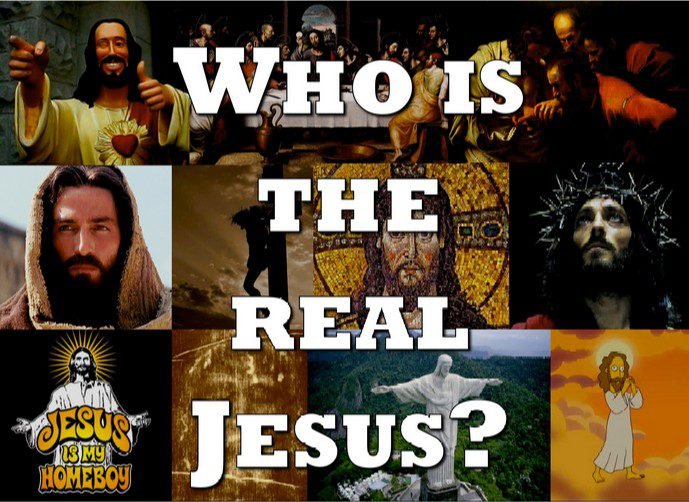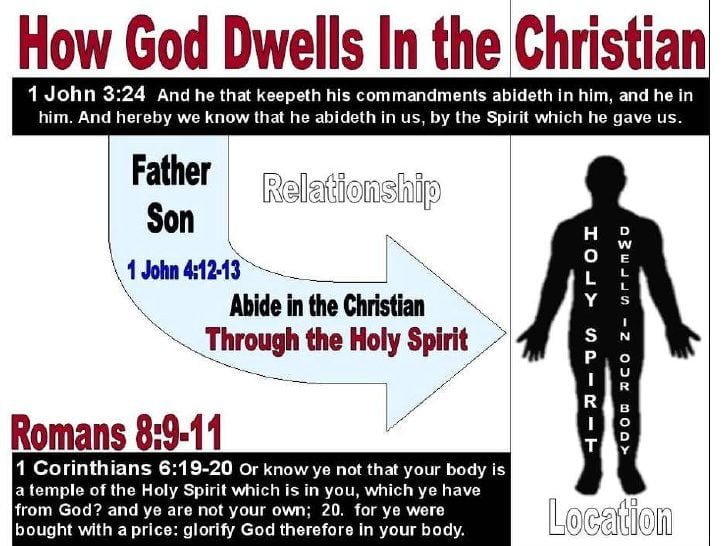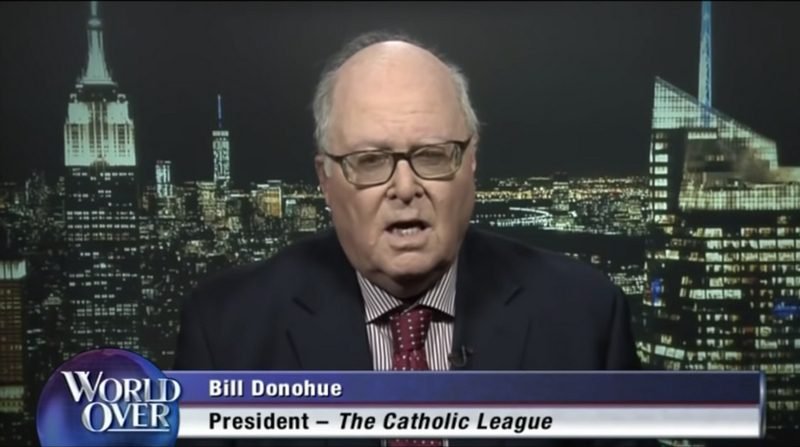
I have been accused hundreds of times over the years of never having been a True Christian®. The gist of this accusation is that I met, worshiped, and followed a counterfeit Jesus. If I had encountered the REAL JESUS and put my faith and trust in him, I would have become a True Christian® and would still be a follower of Christ to this day. The Bible gives cover for this argument when it says:
For such are false apostles, deceitful workers, transforming themselves into the apostles of Christ. And no marvel; for Satan himself is transformed into an angel of light. Therefore it is no great thing if his ministers also be transformed as the ministers of righteousness; whose end shall be according to their works. (2 Corinthians 11:13-15)
They went out from us, but they were not of us; for if they had been of us, they would no doubt have continued with us: but they went out, that they might be made manifest that they were not all of us. (I John 2:19)
According to Evangelicals who say I never met the REAL JESUS, the angels of light in my life — parents, pastors, professors — were actually tools of Satan used by him to deceive me. And true to my training, I then became a false angel of light too — deceiving the churches I pastored and pulling the wool over the eyes of my colleagues in the ministry; that is, if any of them knew the REAL JESUS themselves.
The fact that I no longer profess to be a follower of Jesus is further evidence that I never met the REAL JESUS. Had I met the REAL JESUS, I would have continued in the faith; I would have continued pastoring churches. That I now stand in opposition to Christianity and the teachings of the Bible is clear evidence to Evangelicals that whatever Jesus I followed over my fifty years in the Christian church, he was not the REAL JESUS.
A good example of this thinking can be found in the recent blog comments by Rod Rogers [all spelling and grammar in the original]:
Yes, but you now claim that you are not a christian and therefore you never were a christian, right? You have painted your self into a corner. Either you were a liar for years or you are lying now; but you have to choose. My point is that God is always God or there never was a god. You have claimed both. Very sad.
Bruce, you don’t go from preaching God’s word, studying and praying daily and then wake up one day and say God never existed. That never happens. Somewhere you came to a place where God didn’t meet your expectations. I don’t know where that happened but it happened.
“Each aspect of my life must be judged in its context.” Ok, YOU said you were a Christian, said you were a preacher. In that context, were you preaching the truth or preaching a lie? Preaching a lie makes one what? “All I am saying is that I once was a Christian just like you, and now I’m not.” And all I am saying is that by your own admission you believed in once saved always saved. Now you don’t believe in God at all. By you own theology you yourself believed either you were not saved to begin with or you preached a lie. You are in a corner.
Matthew 7:21 Not every one that saith unto me, Lord, Lord, shall enter into the kingdom of heaven; but he that doeth the will of my Father which is in heaven. Matthew 7:22 Many will say to me in that day, Lord, Lord, have we not prophesied in thy name? and in thy name have cast out devils? and in thy name done many wonderful works? Matthew 7:23 And then will I profess unto them, I never knew you: depart from me, ye that work iniquity. Either you never were a child of God or you still are.
Bruce, it doesn’t matter what happened when. The only thing I am assuming is that you are telling the truth when you say that you were an IFB. If you were ever IFB then you believed in OSAS. You just don’t want to admit the truth. Your comment, “It’s like saying, I’m divorced now, so that means I never was married”?”, has nothing to do with my comment; its Non Sequitor.
I’m 64 years old and have met a lot of people and you are the only one who claims to have lived at the foot of the cross and woke up one day and renounced it. Sorry, I don’t believe that.
Rod is an Independent Fundamentalist Baptist (IFB). As such, he believes in the doctrine of “once saved, always saved.” According to this doctrine, once a person is saved, he can never, ever fall from grace; never, ever lose his salvation. Built upon a foundation of intellectual assent to a set of theological propositions, most proponents of “once saved, always saved” believe that I am still a Christian; that I am just backslidden or out of the will of God. I say most, because some “once saved, always saved” believers can’t bear to fathom that someone who has trodden under foot the Son of God, and has counted the blood of the covenant, wherewith he was sanctified, an unholy thing, and has done despite unto the Spirit of grace (Hebrews 10:29) can still be a Christian. If I am not now a Christian, in their minds that means I never was a Christian; that in decades of pastoral experience I never came in contact with the REAL JESUS.
Calvinists fall into “once saved, always saved” crowd, albeit they believe that a person must endure to the end (death) to be saved; and even then, some people who thought they were saved will wake up in Hell, realizing that they never were one of the elect. What a con job, right? Much like many in the “once saved, always saved” IFB crowd, the Calvinists who knew me have concluded that I never met the REAL JESUS. If I had met the REAL JESUS, I would still be in church, availing myself of means of grace. That I am now an outspoken opponent of True Christianity® is proof to them that I was a false Christian.
In 1994, I was the co-pastor of Community Baptist Church — an independent Calvinistic congregation — in Elmendorf, Texas. While at Community, I became friends with Jose Maldonado, pastor of Hillburn Drive Grace Baptist Church. I had met Joe in the fall of 1993 when he and Pat Horner — my soon-to-be co-pastor — came to preach a conference at the church in Ohio I was pastoring at the time.
I resigned from Community in the fall of 1994. You can read more about that debacle in the series titled, I Am a Publican and a Heathen. After leaving Community, I had no further contact with Maldonado. Imagine my surprise, then, to hear that Maldonado, sixteen years after our last contact, took to the pulpit to let people know that I was now an atheist; a man who never knew the REAL JESUS.
Here’s a short audio clip of Maldonado “exposing” me as a false prophet:
You can listen to Maldonado’s four-part sermon series or read transcripts of his sermons here. You also might find interesting the post titled, Gone but Not Forgotten: 22 Years Later San Antonio Calvinists Still Preaching Against Bruce Gerencser.
The hilarious thing in the whole “Bruce met a false Jesus” saga, is that “once saved, always saved” Baptists and Calvinistic Baptists bitterly oppose one another, each believing the other preaches a false gospel. In other words, each side believes the other has never met the REAL JESUS.
As you can see, the core theological problem for both groups is that True Christians® are eternally saved. The Bible says in John 10:27-29:
My sheep hear my voice, and I know them, and they follow me: And I give unto them eternal life; and they shall never perish, neither shall any man pluck them out of my hand. My Father, which gave them me, is greater than all; and no man is able to pluck them out of my Father’s hand.
Those who hear the voice of Jesus and follow after him are given eternal life and are held safe in his hand. No man is able to pluck Christians out of the hand of Jesus. The problem with this argument, of course, is my life as a Christian clearly shows that I heard the voice of Jesus and followed after him. There’s nothing in my storyline that remotely suggests that I was following after a false Jesus; that I was a wolf in sheep’s clothing; that I was a false prophet. Yet, here I am today, having safely jumped out of the hand of Jesus, an out-and-proud apostate. “How can these things be?” Evangelicals ask themselves. Zealots such as Rod refuse to accept my story at face value, suggesting that there is some part of my story I am not sharing lest I give away the “real” reason I am no longer a Christian. This leads people to concoct all sorts of conspiracies about my loss of faith.
How about we let Occam’s Razor tell the story here. Occam’s Razor is a philosophy which suggests that if an event has two possible explanations, the explanation which requires the fewest assumptions is usually correct: I once was a Christian and now I am not; I once was a follower of Jesus and now I am not; I devotedly loved Jesus and now I don’t; the telling of my story is an honest, forthright reflection of my life as a Christian and an Evangelical pastor — theology be damned. Christians holding to Arminian theology believe followers of Jesus can and do fall from grace. In their minds, I am just one more sad example of someone who chose not to follow in the footsteps of Jesus. Works for me.
Here’s what I know for sure, I once was saved and now I am not. It really is that simple. It is not up to me to help Evangelicals square their theology with my testimony. Can’t make my story fit in the narrow confines of your rigid theological box? Tough shit, not my problem. I have no doubt I met numerous times the REAL JESUS. A mythical being, to be sure, but I most certainly had a torrid love affair with this Jesus for most of my adult life. Just as I would never doubt a sincere Christian’s testimony of faith, all I ask is that Evangelicals grant me the same courtesy. This will never happen, of course, because their theology bars them from doing so. Their intransigence reveals the real truth behind this discussion; that the question has never been about meeting the REAL JESUS; that what really matters is believing the right sectarian doctrines; that Evangelicalism is inherently a text-based system; that what really determines entrance into Heaven is checking off the right boxes on the Beliefs Checklist. The Evangelical gospel is this: BELIEVE THESE DOCTRINES AND THOU SHALT BE SAVED. It’s never been about the REAL JESUS.
Bruce Gerencser, 68, lives in rural Northwest Ohio with his wife of 47 years. He and his wife have six grown children and sixteen grandchildren. Bruce pastored Evangelical churches for twenty-five years in Ohio, Texas, and Michigan. Bruce left the ministry in 2005, and in 2008 he left Christianity. Bruce is now a humanist and an atheist.
Your comments are welcome and appreciated. All first-time comments are moderated. Please read the commenting rules before commenting.
You can email Bruce via the Contact Form.








